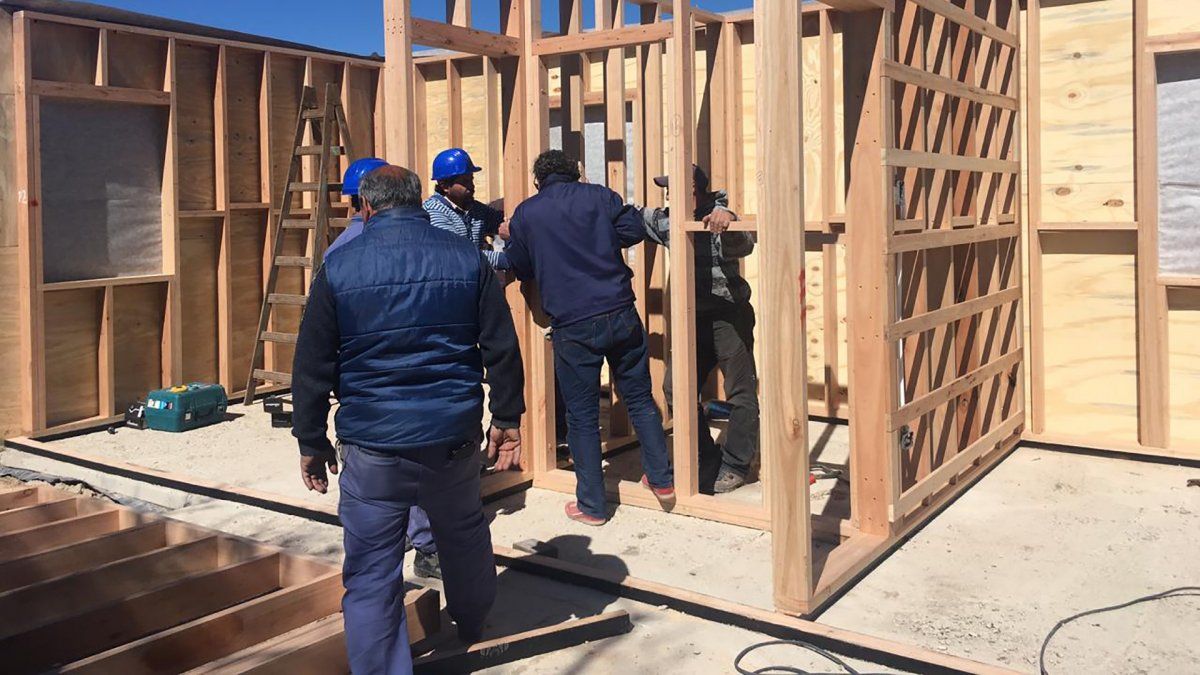The delay in the exchange rate and the adjustment being carried out by the national government caused a strong negative impact on the furniture and sawmill industriesaccording to a report by the Argentine Federation of the Wood Industry (FAIMA).
“The mechanical wood processing industry covers a wide chain of sectors, including sawmills, furniture manufacturing, boards, wood construction and carpentry work,” the entity explained.
The report states that “currently, all these sectors are experiencing a marked recession,” although the intensity and severity varies between them.
In the case of the sawmillswhich represent the first stage of wood transformation, according to the report “has shown sustained declines in its level of activity, with an average year-on-year drop in production of 20% year-on-year in May”. “These declines are more pronounced in small and medium-sized sawmills, where the falls reach 40%,” says the entity that brings together the country’s companies.
He warns that “the export-oriented sawmill sector showed auspicious behavior at the beginning of this year, but has not managed to sustained due to the exchange rate lag resulting from exchange rate stability and domestic inflation.”
“The falls in the level of production have led to a reduction in work shifts, reducing the level of hours worked by 20%, with the consequent impact on the salaries received by workers,” the report says.
Wood industry in crisis: furniture
In the furniture manufacturing segment, FAIMA warns that “the impact of the recession on companies linked to furniture manufacturing has been significant, with a 37% year-on-year decrease in production in the sector”
“In some cases, production has dropped by as much as 60%. These declines have affected not only the level of utilization of the plants, but also the number of shifts worked and, in some cases, the level of employment,” the entity indicated.
The report notes that “many of these companies They are located in towns in the interior of the country, where they are the main generators of local employment, which highlights the importance of its productive viability for regional economies.”
Wood industry in crisis: boards
On the other hand, the report says that “the industry boards exhibit recessive behavior.”
“The boards used in the furniture industry have seen lower demand (as a productive input) due to the drop in the level of furniture production, which directly impacts this link in the industrial chain,” the study states.
It is also highlighted that the boards linked to the construction (plywood) “have experienced a decline in their level of activity due to the decline in the construction industry, which suffered a 22% year-on-year reduction in June.”
Timber industry in crisis: cconstruction woodwork
In this sense, FAIMA details that the construction with wood and carpentry on site “have shown average falls of 30%, driven by the aforementioned decrease in the main construction activity.”
According to the business chamber, “all sectors share the problem of the significant increase in production costs, both due to the increase in inputs and the cost of public services, which have increased by an average of 500%.”
“These increases have been difficult to transfer to prices in the current recessionary context, which has seriously affected the profitability of the entire chain,” says FAIMA.
In light of this, the entity also warns about the deregulatory tendency of the national government. in international trade matters.
“The elimination of technical standards is deeply worrying, “This could allow the entry of imported products of inferior quality, which do not comply with the regulations necessary to avoid accidents that could be potentially harmful to users,” the entity warned.
Source: Ambito




